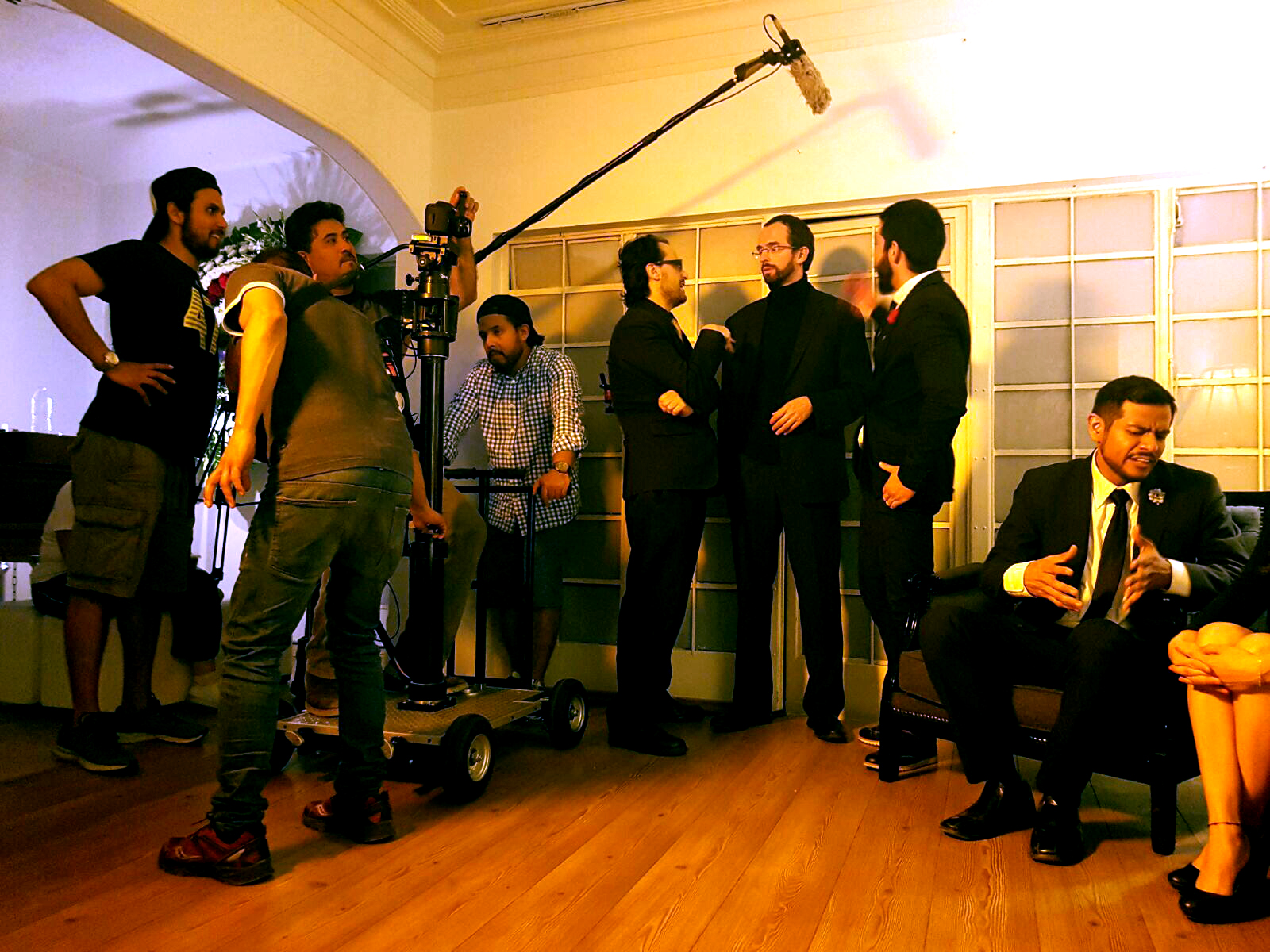Film as Poetry
July 17, 2019

I was working on one scene for "Scenes from a Funeral", and got stuck trying to give the right timing for a frame-hold within a sequence. I've always liked how filmmakers such as Guy Ritchie, Edgar Wright, and Danny Boyle include this particular type of cuts in their films because they go beyond the traditional editing of a movie, adding more to the language of film and at the same time giving a more dynamic feel to the story.
I find this innovative, fresh and daring. However, to date I haven't been able to add this particular style into my editing successfully. When I run the cut, I still feel that something's missing whenever the sequence arrives to a frame-hold. Perhaps, it has its own unwritten rules. Rules, in which the audience's subconscious plays an active role. But if this was the case, I wonder, how is it that we -as audience- subconsciously demand certain amount of reality resemblance from a movie.
In other words, why is it that we ask for reality to be shown as it is, that is, as we know it, in film. Even when the story, the setting of the film, is inscribed in the realm of fantasy or science fiction, we demand that reality is presented relative to the own rules of the world created by the writer and/or the director. And if this reality is broken by a given scene, or shot, or cut, or character, then we deem the work as strange or odd, and as a consequence we follow the story uncomfortably. This is usually the case in movies from filmmakers such as David Lynch, Tarkovsky, Buñuel, Bergman, Derek Jarman, and even Jim Jarmusch, where -for instance- the presence or the reaction of a certain character appear to be odd to the average viewer who in the best of cases deem the work as "surreal".
It is indeed strange that we as audience demand unconsciously and silently that film conforms to reality relative to the physical rules within the world created by the film itself, whereas in other art expressions such as music and poetry, we -as consumers of these art forms- concede artistic license to its creator in order to violate the rules of nature. In this sense, music is more related to poetry than it is to film, and as Schopenhauer wrote in "The World as Will and Representation", music is the purest art form as it doesn't aim to resemble any aspect nor any feature of the real world. Meanwhile, film -from the time it was born- it was subjugated to drama, that is, to theater. And as such, one of its main goals was also to serve as a faithful representation of reality. (Faithful to the physical laws of the fictional world in which it is inscribed.) This, in my opinion, was a terrible aesthetic mistake that we are paying to date both as creators and consumers.
I guess in a sense we have been trained by the mainstream film industry to consume, to react and appreciate film the way we do. It should be a joint effort from both the filmmaker and the audience to change this, and to allow ourselves as audience to experiment a new range of emotions triggered by movies that we currently deem as surreal or experimental. I believe that something similar happened during the transition from Mannerism to the school of Caravaggio, or between the realistic paintings of the Renaissance or the Baroque school and the abstract paintings of Pollock and Kandinsky. In sum, we as filmmakers and audience should let film -as an art expression- run free in the direction that better suits our aesthetic needs, and stop restraining it to the rigid canons of storytelling.
~Vico Herurbi.
About Us
We believe in filmmaking made easy. We believe in doing more with less. That is our mantra, and we are not only proud of it but also aim to fulfill it in all of our projects.
Know more!